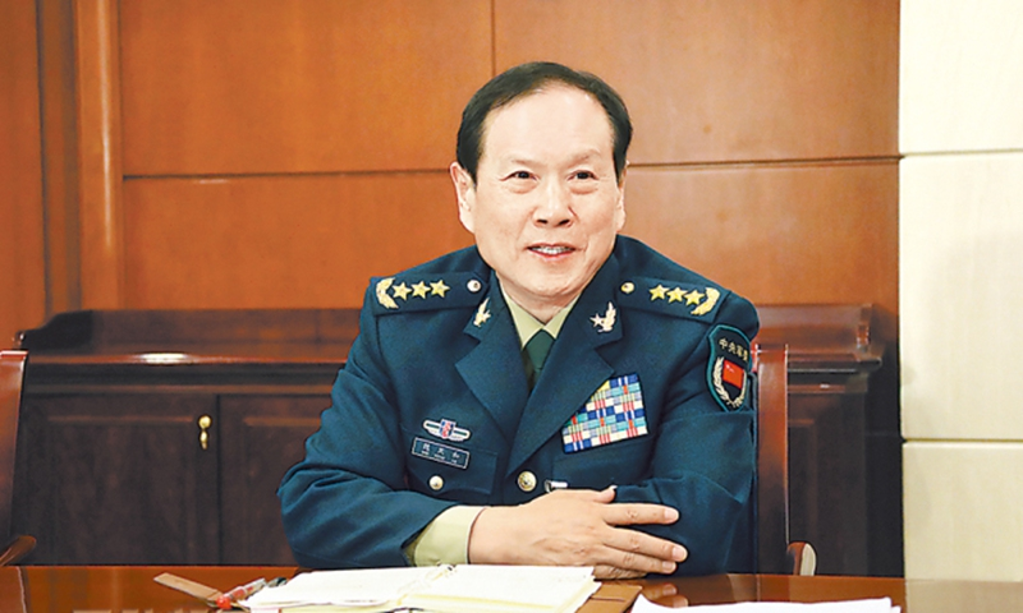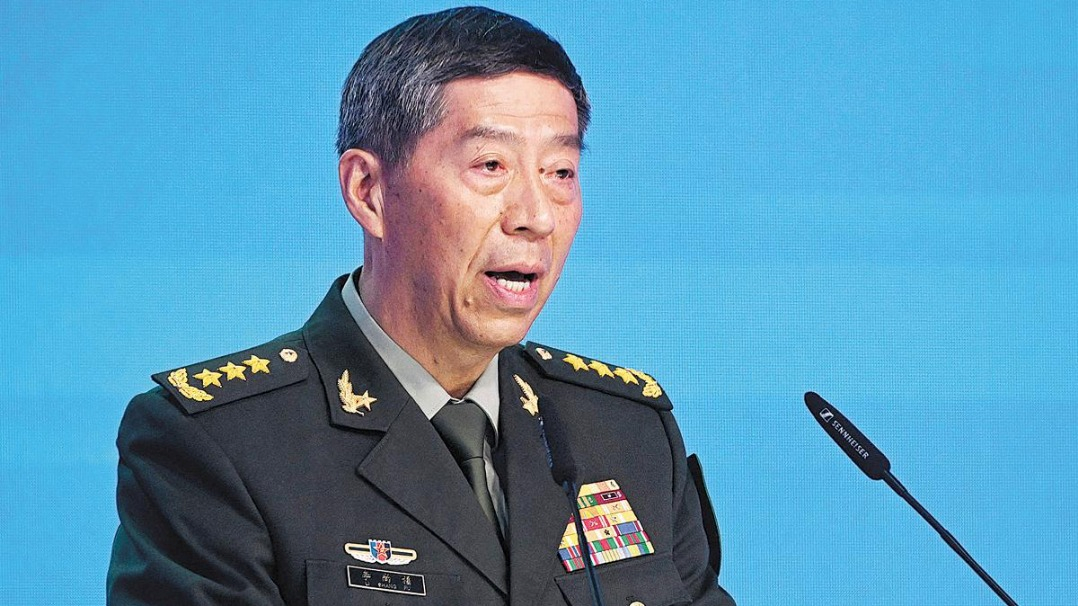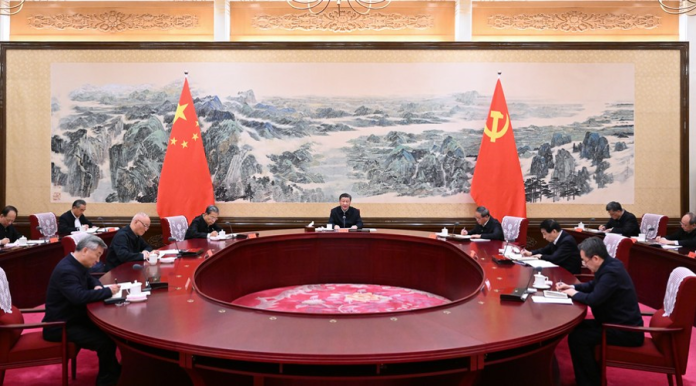On June 27th, the Chinese Communist Party’s (CCP) Politburo expelled former National Defense Ministers Wei Fenghe and Li Shangfu after approving the Central Military Commission’s (CMC) reports on their serious violations of discipline and law. The expulsion of Wei and Li, who were also removed as delegates to the 20th National Party Congress, underscores the CCP’s ongoing anti-corruption efforts within the People’s Liberation Army (PLA).
Report Regarding Wei Fenghe
The Politburo reviewed the “Report of the Central Military Commission on the Review of the Results and Handling Opinion on the Wei Fenghe Issue” during the meeting. The report was produced by the CMC’s Central Commission for Discipline Inspection (CCDI) beginning in September 2023 based on its investigation of Wei due to his “serious violations of discipline and law.” The CCDI stated that Wei “seriously violated political discipline, did not fulfill his political responsibility of comprehensively governing the Party, and committed serious violations of discipline and integrity.” However, the report pointed out that Wei also “received illegal gifts and gratuities, used his position to seek benefits for others, received significant amounts of money, and accepting bribes.”

The CCDI also found Wei committed other serious violations of discipline and law. Wei, “as a senior leading cadre of the Party and the army,” he lost his faith and loyalty.” His actions also betrayed the “confidence and great trust” of the CCP Central Committee and the CMC. Wei also “seriously polluted the PLA political ecology” and caused extreme damage to the Party’s cause. Furthermore, Wei’s actions also caused significant damage to China’s national defense, Army building, and the image of the senior leading cadres. The CCDI characterized all of Wei’s actions as having caused “major damage” that was extremely serious and harmful in nature and impact.
The Politburo decided to expel Wei as a member of the CCP, terminate his qualification as a delegate to the 20th National Party Congress, and transfer the case to the local military judicial organs for prosecution. They based their decision on abiding by the “Regulations on Disciplinary Actions of the CCP” and other relevant provisions.
Report Regarding Li Shangfu
The Politburo also reviewed the “Report of the Central Military Commission on the Review Results and Handling Opinions on the Li Shangfu Issue.” The CCDI initiated its investigation into Li based on the Party Central Committee’s recommendation in August 2023 for “serious violations of discipline and law.”
The report found that Li “seriously violated political disciplines, failed to fulfill his political responsibility of comprehensively and strictly administering the party, and resisted organizational review.” He also violated the PLA’s organizational disciplines and “sought personal benefits for himself and others in violation of regulations.” Li also took advantage of his position to seek benefits for others and accepted large sums of money. The report also said that Li is “suspected of accepting bribes, giving money to others for the purpose of seeking improper benefits, and is suspected of offering bribes.”

However, the investigation also found clues to Li’s other violations of discipline and laws. Li, “as one of the PLA’s senior leading cadres, abandoned his original mission and lost the principles of party spirit” due to his actions. Furthermore, the report said that his behaviors did not live up to the “confidence and great trust” of the CCP Central Committee and the CMC, “seriously polluted the political ecology and industry atmosphere in the field of military equipment, and jeopardized the cause of the Party, national defense, and the PLA.” Li also caused significant damage to the image of the PLA’s senior leadership cadres. The report characterized the nature of Li’s actions as “extremely serious,” and the harm is particularly huge.
After reviewing the report, the Politburo decided to expel Li as a member of the CCP, terminate his qualification as a delegate to the 20th CCP National Congress, and transfer his case to the military procuratorate for prosecution in accordance with the law. Furthermore, the Politburo will recognize Li’s expulsion from the CCP in the upcoming Central Committee’s 3rd Plenary Session.
Wei and Li Dismissal is Based on Corruption But Questions Remain
The dismissal of Wei and Li as members of the CCP and delegates of the CCP National Congress is the latest in the ongoing anti-corruption purge of PLA officers. Both investigations focused on this aspect while also pointing to the specific crimes they committed. For example, Wei likely used his position on the CMC to buy and sell officer promotions to other PLA officers, since half of the allegations in the report say he accepted illegal gifts and large sums of money. Wei accepted these bribes in exchange for him using his position and influence to allow the buying and selling of promotions both within and outside his power base. Furthermore, the CCDI report indicates that Wei lied to officials during the initial parts of Li’s investigation to prevent himself from being implicated in it. Officials, however, had some idea about the extent of Wei’s and Li’s relationship such as being part of the same power base.
Li’s report indicates that he accepted and gave bribes related to military equipment over the years, likely during his time as Commander of the CMC’s Equipment Development Department and as Deputy Commander of the now-defunct PLA’s General Armament Department. Li used his positions at the two units to accept bribes from Chinese defense companies and contractors to skip parts of the verification or acceptance processes for weapon systems or equipment developed for the PLA. Furthermore, he could have stolen funds from weapon systems’ development budgets because he was the commander of the units and had a past history of extensive corruption within the unit. Li, however, likely participated in the buying and selling of PLA officer promotions since he also had a large amount of influence in the PLA, his own power base, and was well positioned to assist in the scheme.
The ongoing anti-corruption purge illustrates that corruption, such as the buying and selling of officer promotions, is still prevalent throughout the PLA. This is despite the previous anti-corruption drives that saw several hundred PLA officers expelled from the CCP and military and legal cases lodged against those individuals. However, corruption likely still exists in the PLA, but has become more hidden to prevent the CCDI from extending its investigations to these individuals. Previous practices were more in the open, with junior PLA officers buying alcohol and other gifts and presenting them to senior PLA officers to receive promotions. Li, Wei, and other individuals also greatly benefited from being a part of Xi’s power base since it allowed them to continue the corruption without fear of being captured. The cases also caused significant worry for Xi because Li was seen as being close to the Chinese and a part of his power base. This shows that Xi relies more on political reliability than any emphasis on a lack of corruption.
Corruption does not entirely explain why only Wei and Li were brought up on corruption charges and not other senior officials such as Zhang Youxia. For example, Li succeeded Zhang in the PLA departments responsible for equipment development, which points to his participation in the same kinds of corruption as Li. Furthermore, he also participated in the buying and selling of promotions, as did Wei and Li, because he could use his position to sell promotions. Zhang likely did participate in some acts of buying and selling because of the past and current prevalence of corruption throughout the PLA. Zhang, however, is shielded from any scrutiny from the CCDI since he is a part of Xi’s power base. Furthermore, Xi also views Zhang as valuable since he is one of the only PLA officers to have experienced combat, which would allow him to guide the PLA to become more combat-focused.

